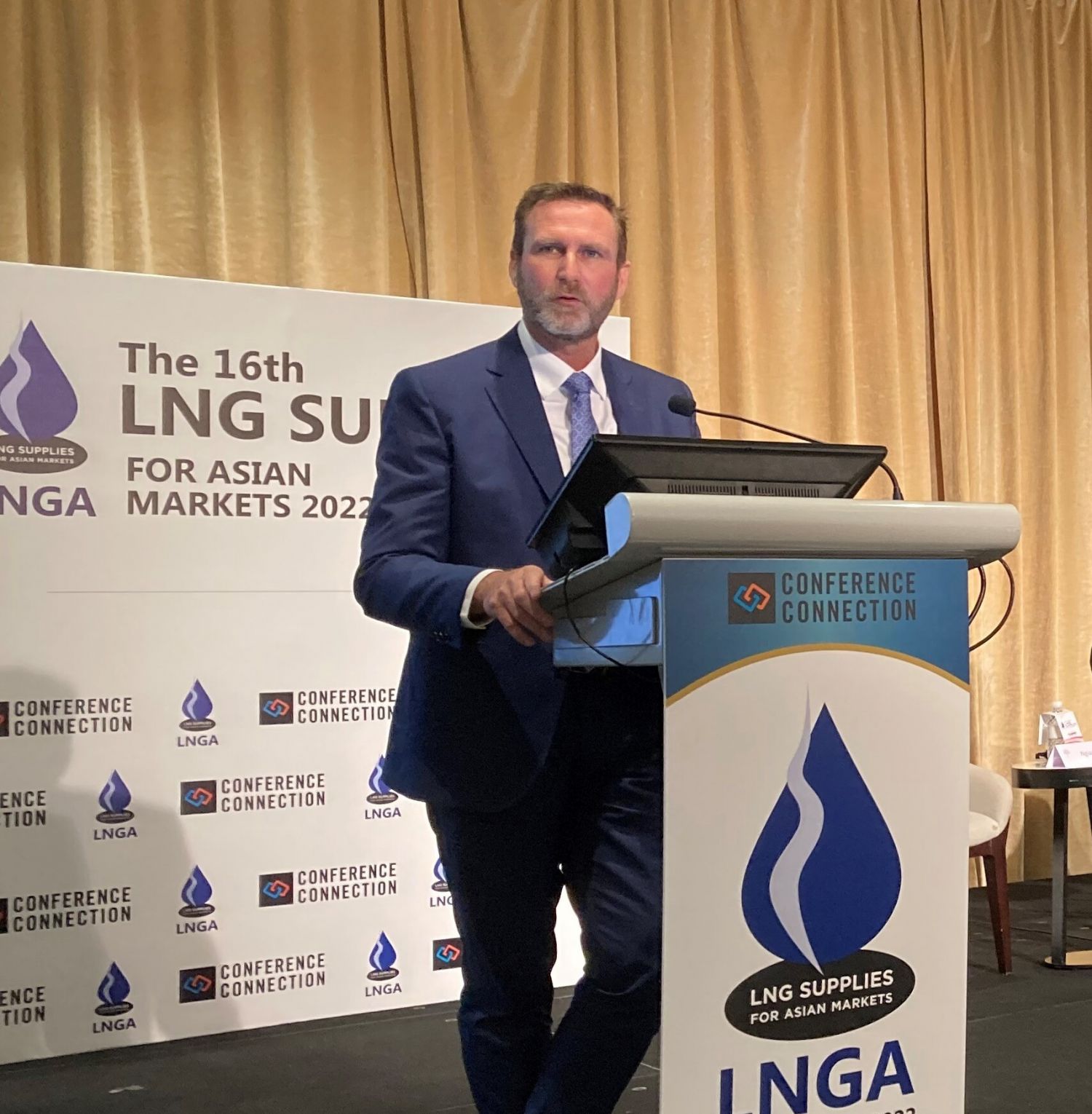Paving the way towards this new energy future will see the world develop many different paths to achieving power for all, especially in rising nations.
Because what is helping nations to move forward, improving the standards of living across Asia Pacific and building economic opportunities, is access to uninterrupted and affordable energy, explained ExxonMobil vice president, Global LNG Marketing, Andrew Barry, during the LNG Supplies for Asian Markets 2022 conference in Singapore.
The global demand for energy is expected to increase by 15% by 2050 as rising nations’ middle class grows and they add four times in power use as what is reduced by developed countries, Barry said.
As part of this growth, the level of global energy and industrial-related emissions is also increasing, due in part to energy-intensive processes used to make basic goods and infrastructure, like steel, cement, aluminum, glass and chemicals, create emissions that are hard to abate.
This has created a multilevel challenge of trying to meet the growing energy needs of people, expanding the capability of lower-emissions power, and reducing emissions.
To achieve this balancing act, developed and developing countries can utilize a mix of diverse energy sources like renewables, hydrogen or lower-emission fuels, as well as energy-efficient approaches to lower their carbon footprint.

A multifaceted approach to energy is helping nations support their development while reducing emissions.
In addition, emission-reduction technologies such as carbon capture and storage (CCS) can go hand-in-hand with the power generation sector, as there is no single path to decarbonization of the world’s existing power grids and industrial networks.
“All lower-emission sources play important roles,” Barry said, “and one of those solutions to helping achieve decarbonization is natural gas, which represents a lower-carbon alternative to coal.”
“When natural gas is used to generate electricity, it emits up to 60% fewer greenhouse gas emissions compared to coal, and so natural gas in power generation offers an immediate, large-scale and proven option to make significant progress in lowering global emissions and improving air quality.”
Natural gas generation is also flexible and enables higher penetration of renewables, supporting their integration and developing the next chapter of the energy transition.
“As we lean forward into the future, we see great potential in combining natural gas value chains with CCS to generate lower emissions and fuels such as hydrogen that will address the needs of hard-to-decarbonize industrial sectors and commercial transportation,” he said.
Barry went on to say these energy sources and lower-emission technology supported by forward-looking government policies can turbocharge their development.
“The need for energy is universal,” Barry said.
“ExxonMobil is working to advance smart and scalable solutions including new ways to help decarbonize the largest emitting sectors: manufacturing, power generation and transportation systems. Because there isn’t just one climate solution – there are many,” Barry said.
On the path of the global energy transition, all the approaches and technology that help the world develop the next chapter of power are needed to build a better future.




